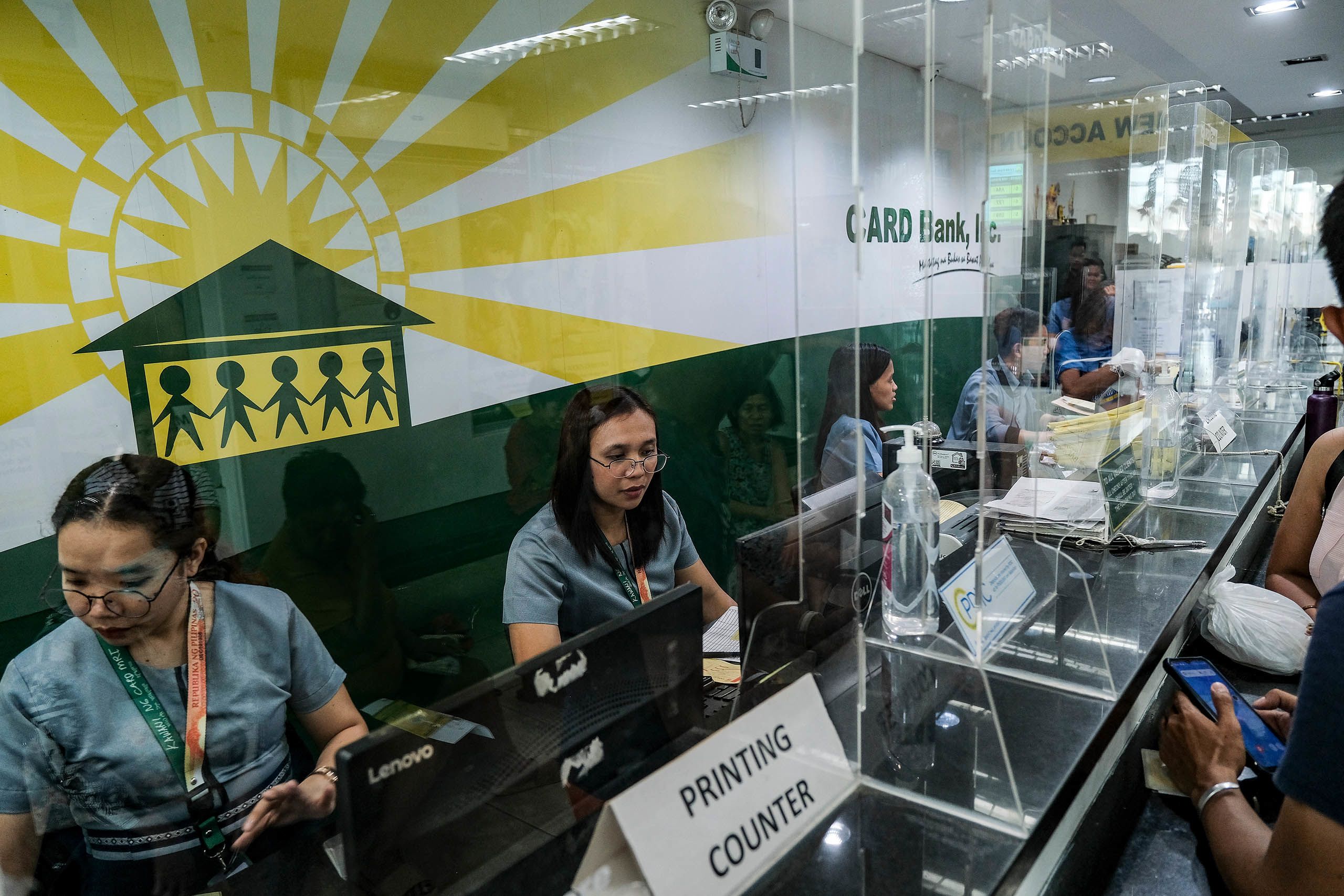From Dreams to Reality
How Access to Finance is Empowering Women-Owned Businesses in the Philippines
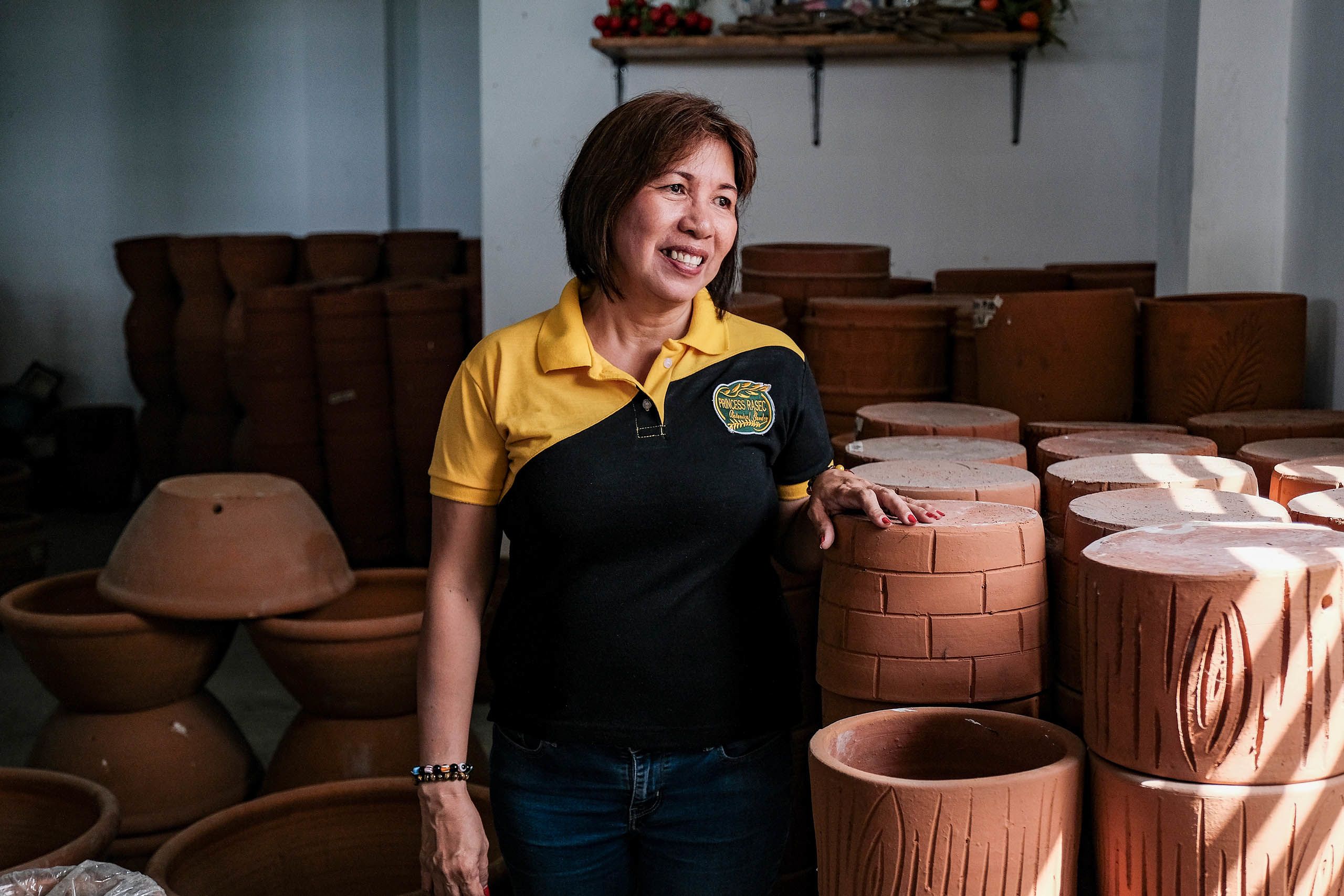
At 50 years old, a satisfied Victoria Gubuat-Torres realized she had achieved her goals. Despite having been a young mother with two children at the age of 22 and never finishing school, she had still made her dreams a reality. She and her family owned their home, were running their own family business, and she had been able to put her third child in a prestigious university. Things had changed for the better.
She and her husband had once struggled to provide for their children, almost starving at one point. These hard times drove her to learn to grow plants and now, Gubuat-Torres is the thriving small-business owner of Princess Rasec Botanical Garden in Calauan, Philippines. What started as survival and a “10 square meter plot,” she says, has now blossomed “into owning 2 hectares in Trangka, 1 hectare in Puypuy, and 4 hectares in Victoria, and then [Calauan] here.” Today, she employs over 100 people.
Ms. Gubuat-Torres credits hard work, perseverance, and a loan from CARD Bank.
Micro, Small, and Medium-Sized Enterprises (MSMEs) play a crucial role in the Philippine economy, making up 99.5% of firms in the country, contributing about 40% of GDP and employing 65% of the labor force. Despite the importance of the sector in the Philippine economy, access to finance remains a major challenge for MSMEs. The banking sector, which controls around 82% of the total resources in the Philippine financial system, has historically been reluctant to lend to MSMEs due to the higher perceived risk and the high processing cost relative to loan size.
“My very first loan with CARD Bank was 2,000 pesos, around 70 USD, and I became a member in 1999,” she says. After losing everything during Typhoon Milenyo, Ms. Gubuat-Torres received her second loan—a calamity loan—from CARD Bank that helped her expand her business. “It was the calamity loan of 5,000 pesos, around 85 USD, that truly helped and sustained us,” she explains. Using this money, she initially purchased seedlings and propagated some into mother plants.
When she started at CARD Bank, she only had to attend the financial literacy meetings, and no collateral was required to receive a loan—a common barrier for entrepreneurs in obtaining funding for their businesses.
“It's as if CARD Bank trusts the landless,” she says. “I told myself that I would do whatever it takes to secure the maximum loan from CARD Bank. I finally got it because they granted me the maximum calamity loan due to my 100% payment rate and 90% attendance rate. And perhaps CARD Bank noticed that I used it responsibly. And then, that's it, I'm hiring someone.”
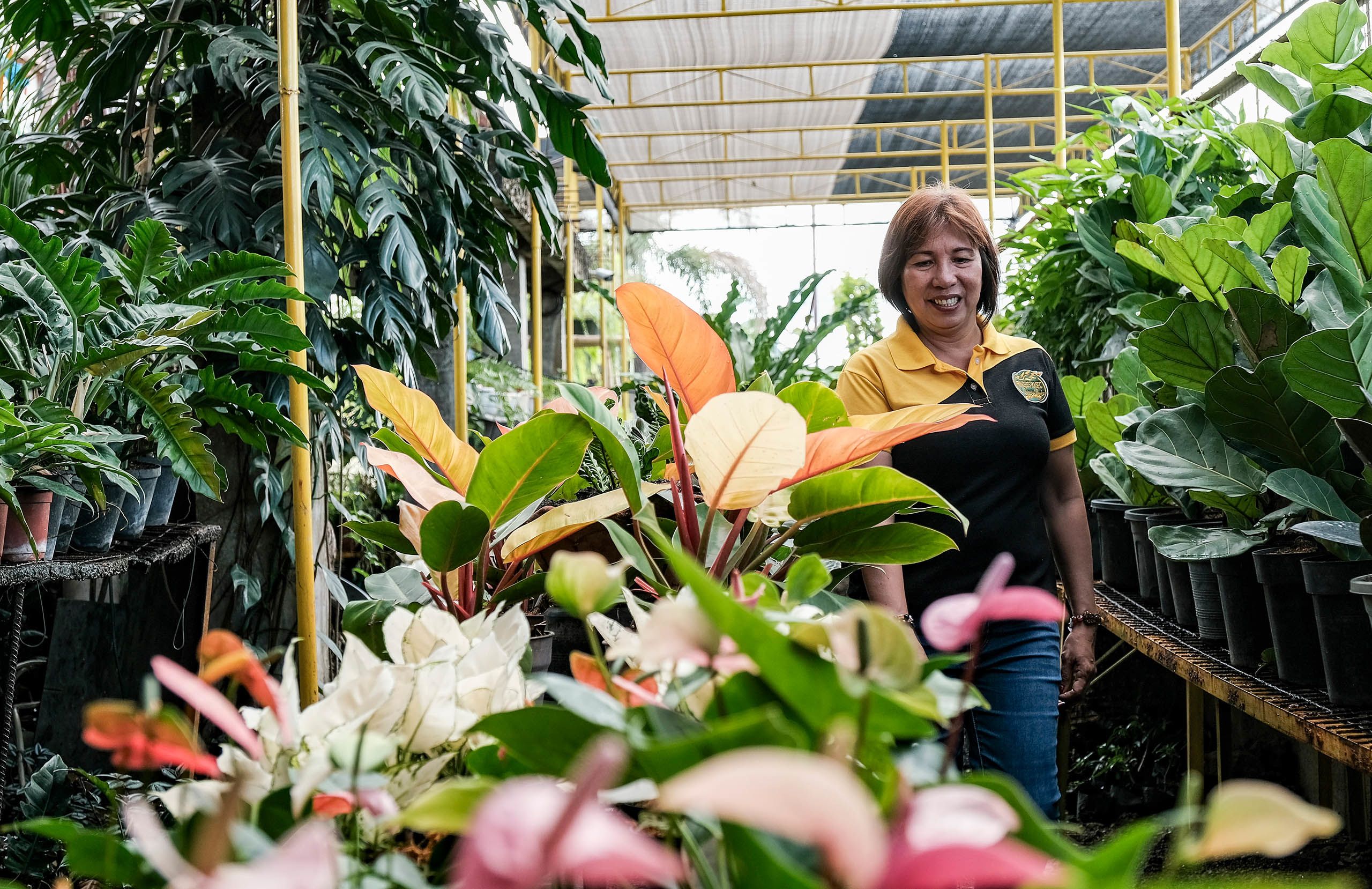
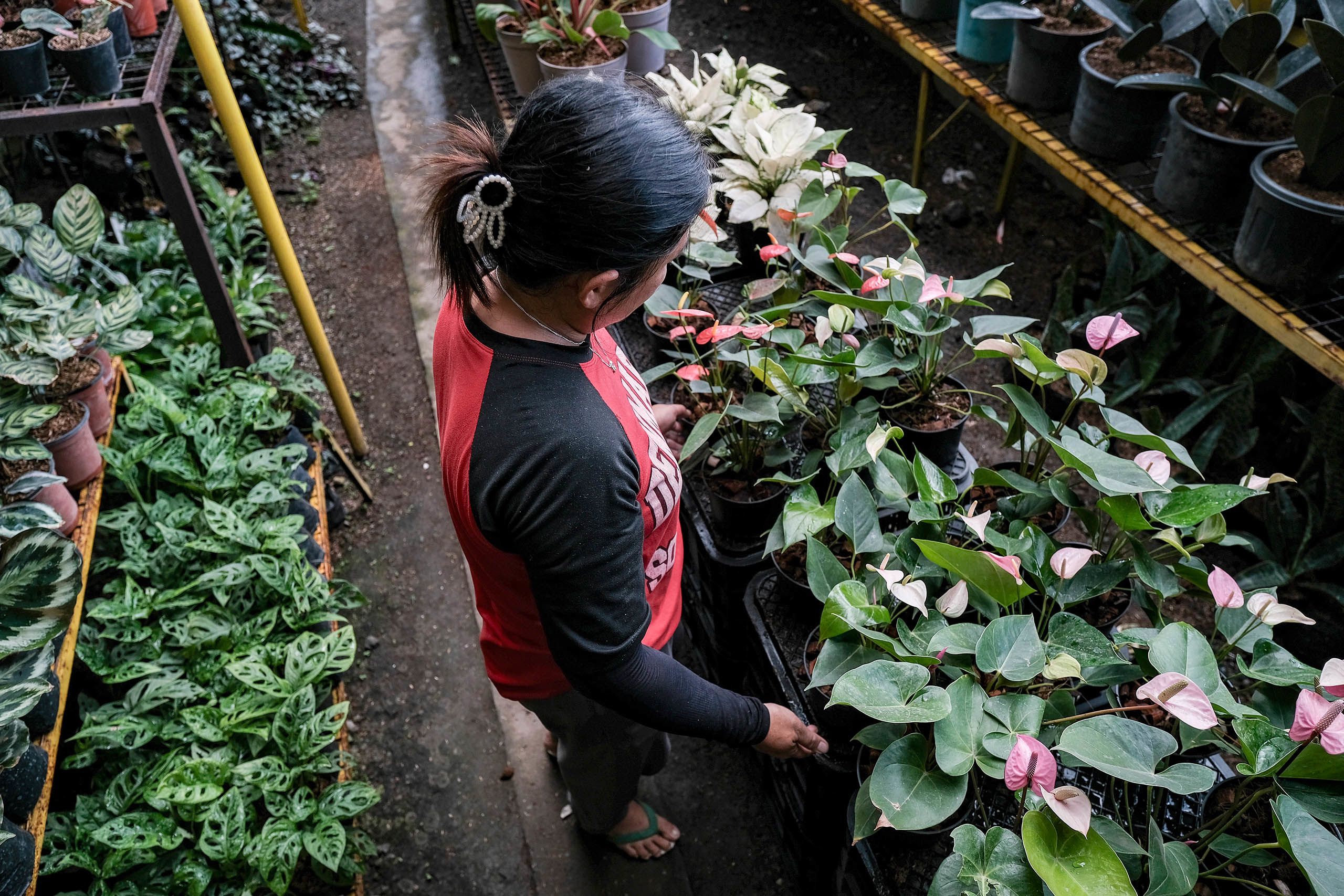
“It's as if CARD Bank trusts the landless”
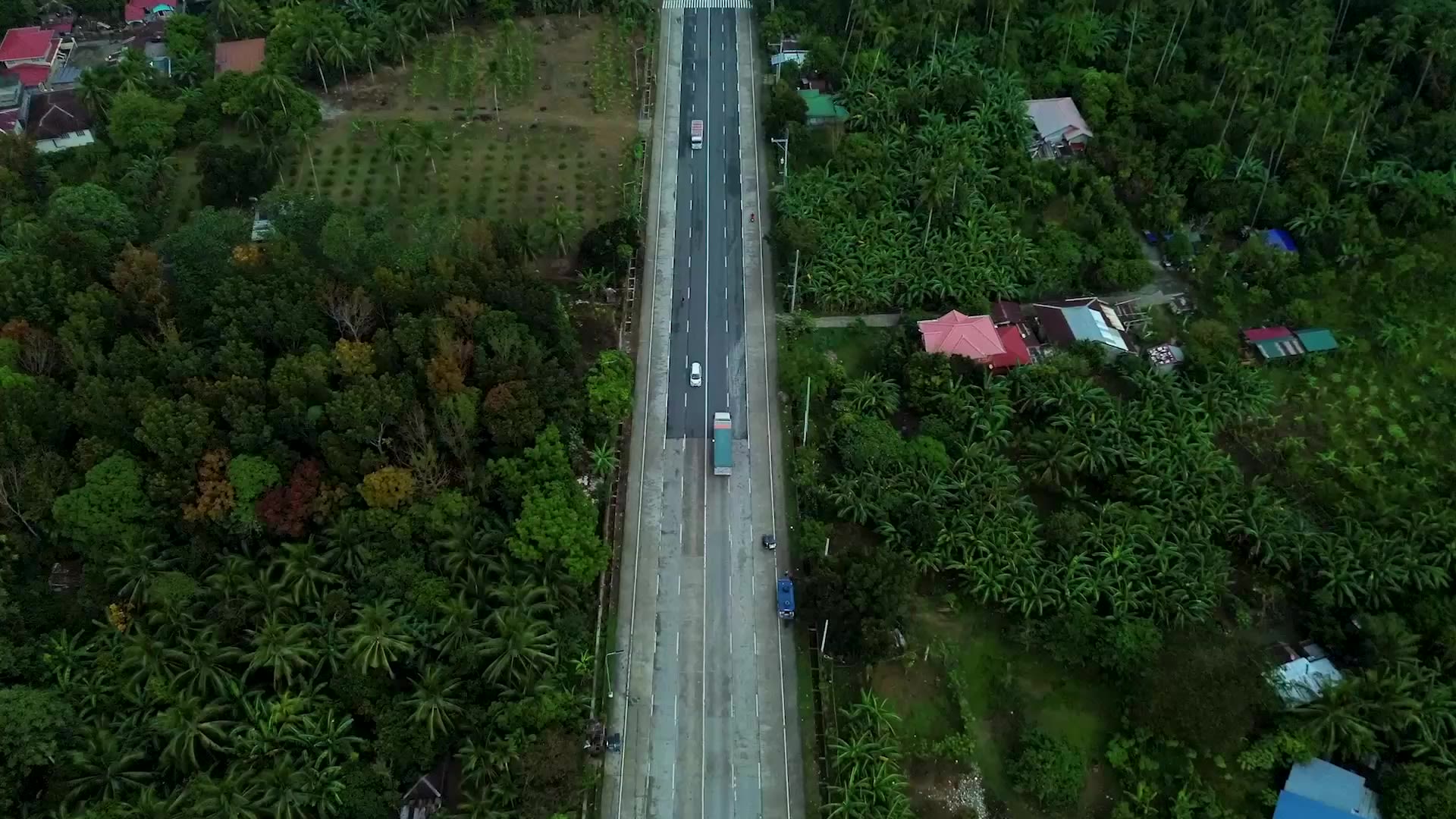
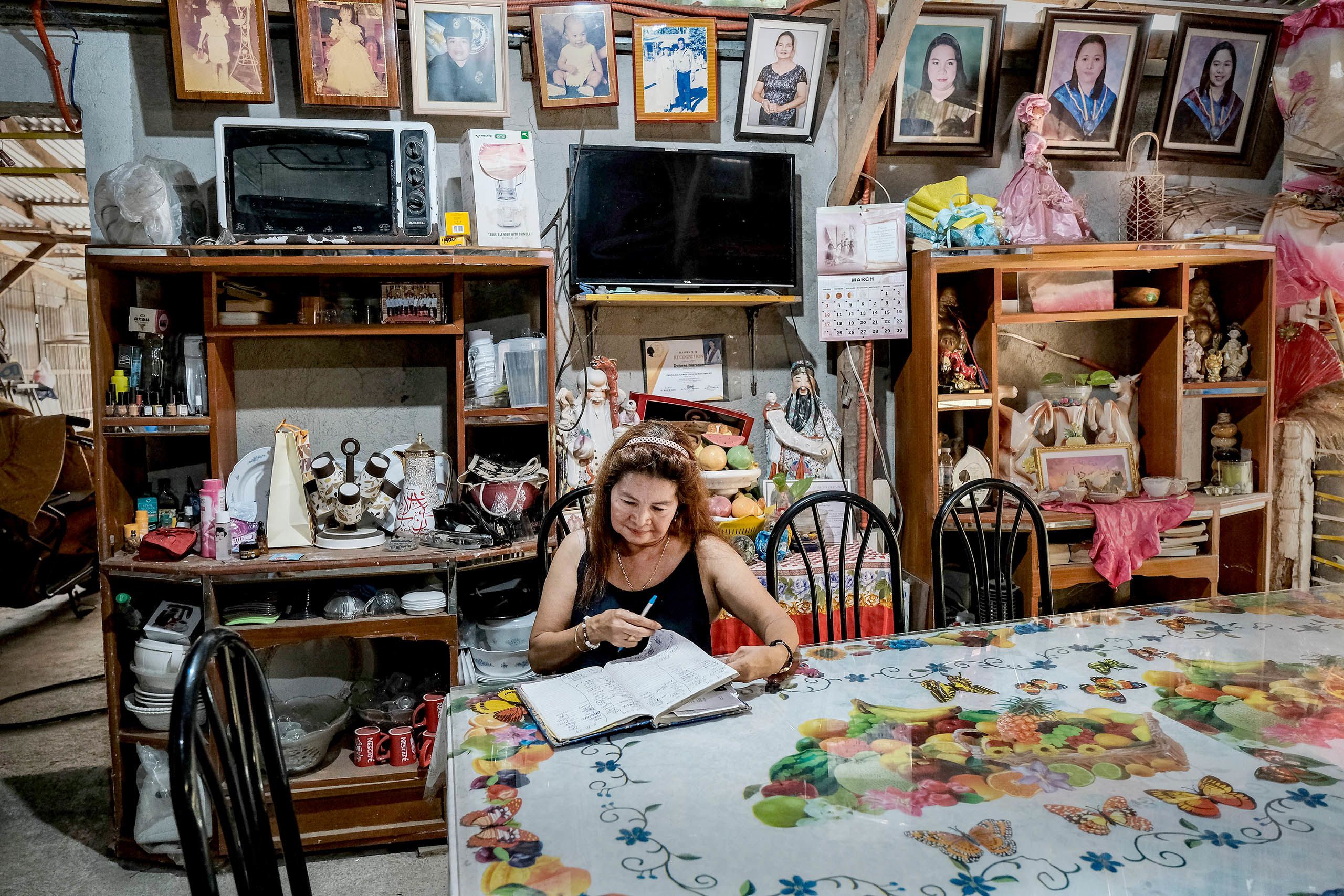
Dolores Perez-Maranan checks her store’s ledger at the dining table. Behind her are photos of her family, including from her children’s graduation.
Dolores Perez-Maranan checks her store’s ledger at the dining table. Behind her are photos of her family, including from her children’s graduation.
The experience was similar for Dolores Perez-Maranan from Laguna, Philippines. “I didn't have any collateral. All I had was my honesty with the CARD Bank, that I managed the money they lent me properly. That's all I held onto with them,” explained Perez-Maranan.
Starting off with a small eatery and three cooking pots, Ms. Perez-Maranan is now the owner of a 24-hour grocery store, carrying a range of goods from medicine to milk. Thanks to a loan from CARD Bank, and Ms. Perez-Maranan’s responsible borrowing habits, not only has her loan-size increased, so too has her grocery business .
“They [CARD Bank] serve[s] as my life partners, helping and supporting me for my children, my intention. I have progressed because of CARD Bank,” said Perez-Maranan. “I entered the grocery business with a substantial loan from them, and it flourished.”
CARD Bank is one of the largest microfinance institutions in the Philippines. It has helped serve over 1.4 million clients of which around 90% are women. Microfinance is a critical tool for poverty alleviation and financial inclusion in the Philippines. However, processing these microloans is time consuming and limits or delays the number of new loans the bank can issue. Through IFC’s advisory services work with CARD Bank, a new scorecard is improving the bank’s credit underwriting process, enabling CARD Bank to grow its footprint and customer base, as well as boost financing for women entrepreneurs like Ms. Gubuat-Torres and Ms. Perez-Maranan.
IFC’s Advisory Services project with CARD Bank was supported by funding from the Global SME Finance Facility, a blended-finance partnership focused on helping to close the financing gap faced by SMEs in emerging markets.
With IFC’s support, CARD Bank has developed and deployed an automated credit scoring model. The new model automates the credit decision-making process and supports the transition of eligible microfinance clients to SME clients, as well as eliminating the time-consuming process of manually filling out forms. By improving existing credit management practices and operational efficiency, the bank is able to increase its lending to MSMEs and help more business owners access the finance they need to grow.
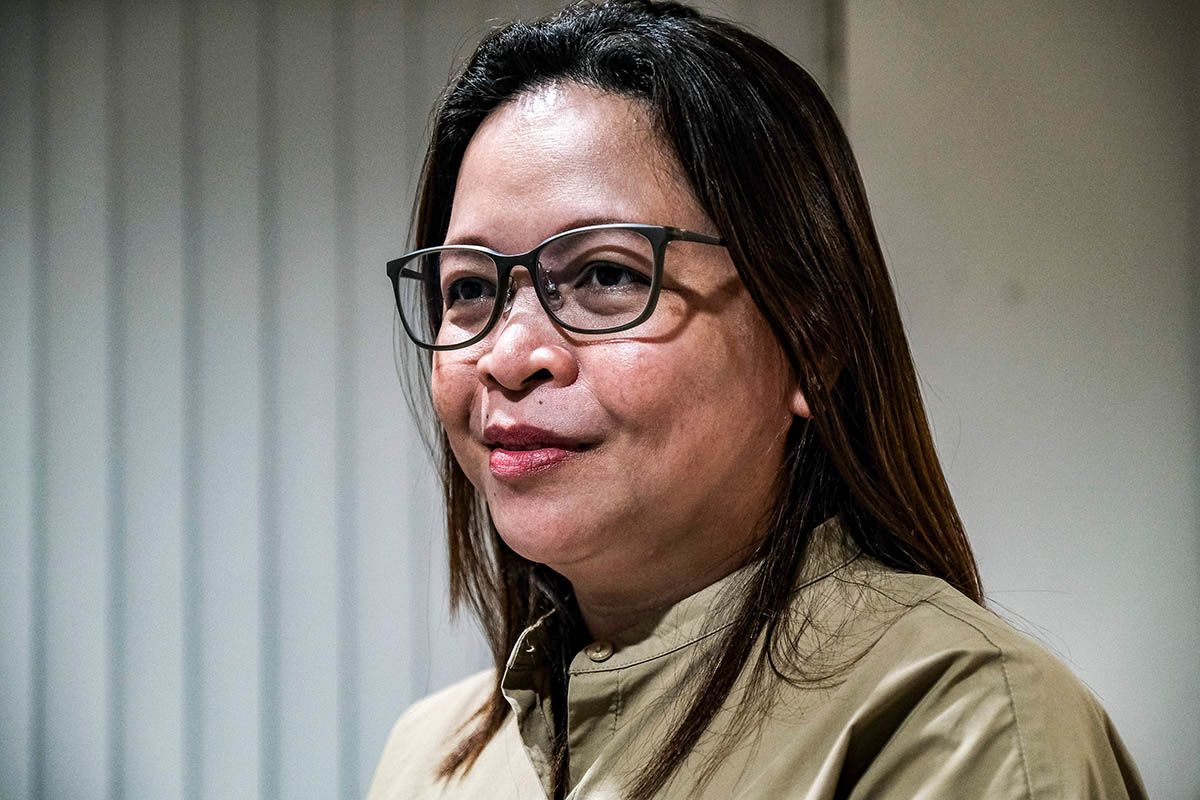
Marivic Austria, President and CEO of CARD Bank.
Marivic Austria, President and CEO of CARD Bank.
“The majority of our clients, especially those who have been with us since 1988, were already moved out of the, what you call, poverty threshold,” said Marivic Austria, President and CEO of CARD Bank. “They are now owning businesses. They now have vehicles. All of their children are already finished in their school, college.”
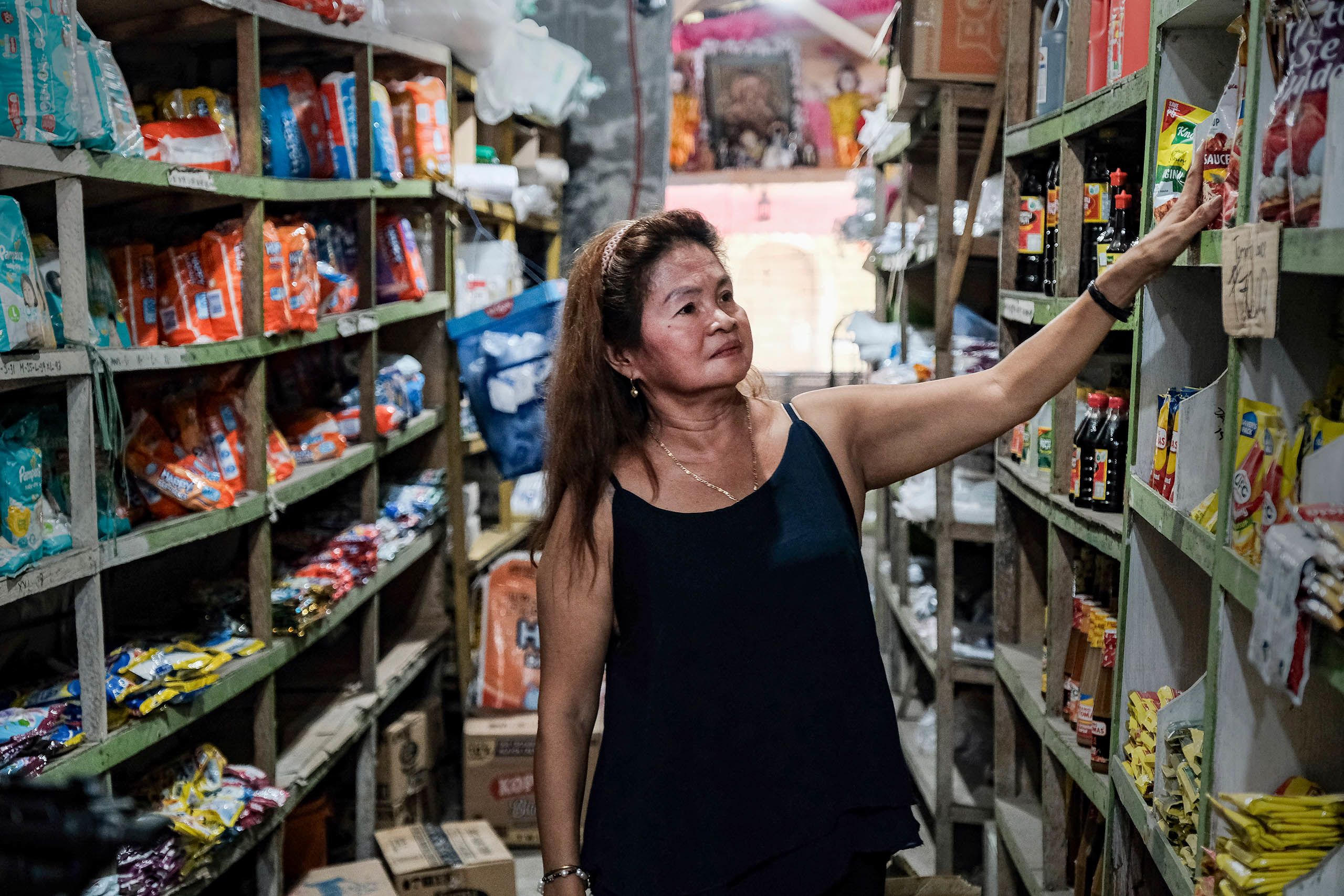
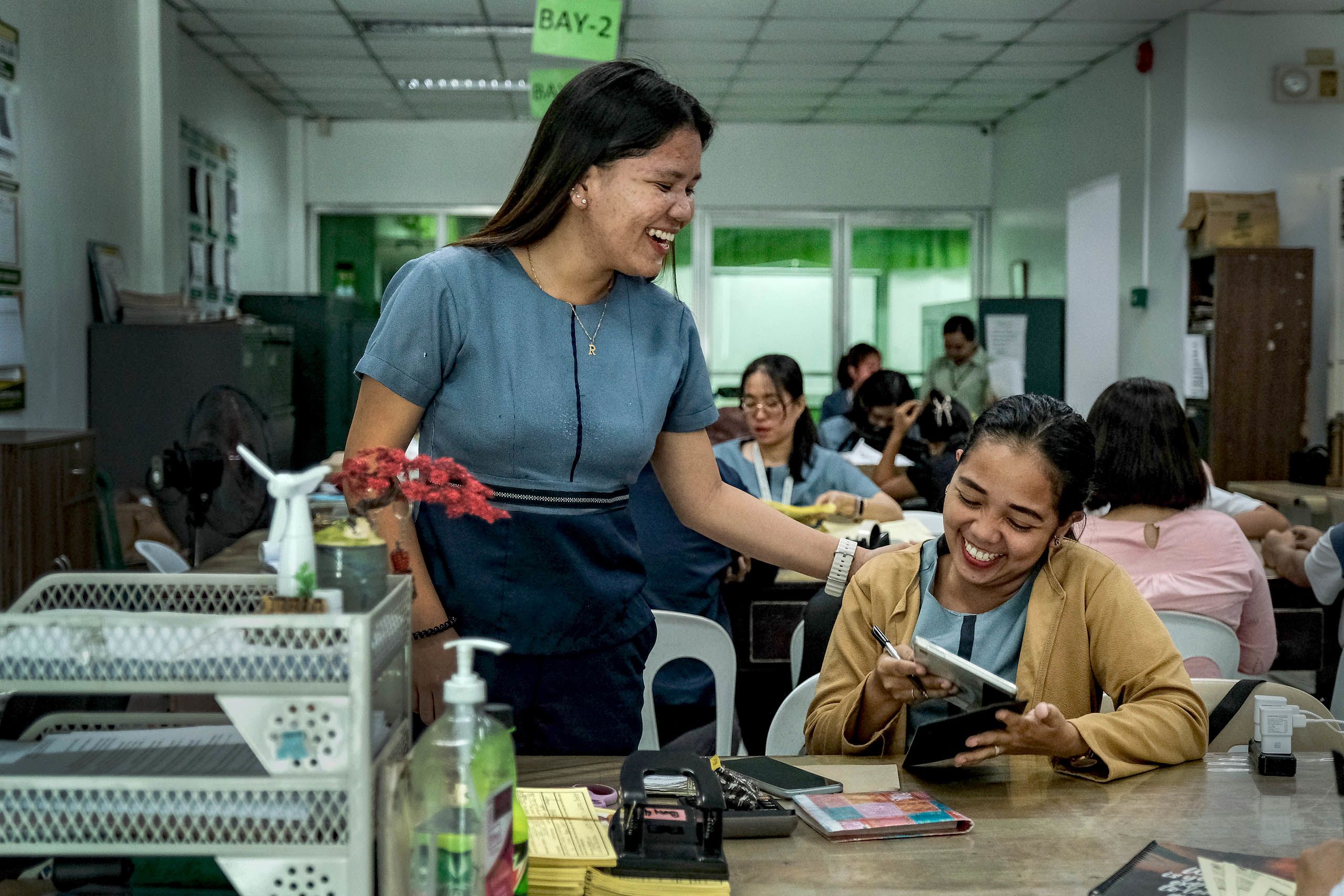
CARD Bank account officers at the Bay, Laguna branch share a light moment.
CARD Bank account officers at the Bay, Laguna branch share a light moment.
Following a successful pilot run in six of the bank’s largest branches, the new scorecard was rolled out nationwide. The bank has since disbursed more than 10,000 new loans, of which 93% went to women or women-led businesses.
In addition to providing better service for new and existing clients, the scorecard implementation is estimated to save more than 140,000 person-days while significantly minimizing errors from manual data encoding.
“The staff are happy because we've tried to do a credit score on our own, manually. And it really took time,” said Austria. “Actually, there was really an increase in our loan portfolio.” She explained that the bank has grown its loan portfolio from 13 billion Philippine pesos, roughly 225 million USD, to around 16 billion Philippine pesos, roughly 277 million USD, in just over a year. “An all-time high.”
“The business really is to eradicate poverty in the Philippines. That has been a standing mission and vision of CARD. And for us to really focus on that mission, we really have to start with the micro-clients…And then, from time to time, build on their capacities, their business, until such time that they will transition to an SME, as an SME client.”
Published, August 2024
